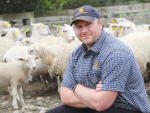Dairy and beef farmers are being asked to help develop frameworks to control the disease bovine viral diarrhoea (BVD).
The infectious cattle disease costs New Zealand farmers about $150 million per year in reproductive problems and lower growth rates and milk production. Infected animals are also more likely to fall ill from other diseases and spread these within and between herds.
A national campaign led by Massey University and the National BVD Steering Committee will run until May 15 next year.
Cattle farmers can register on the project’s interactive website to confidentially share how they now manage BVD in their herds, or they may work with their veterinarian to develop a new BVD management plan tailored to their herd.
The researchers will then use this information to predict what the future of BVD in NZ might look like if the current voluntary approach was continued, versus adopting more coordinated national efforts.
The National BVD Steering Committee chair Roger Ellison says the more information the project has the better it can support farmers in managing the disease.
“Every farmer in NZ has different management styles, risk factors and priorities that will influence what the optimal strategy would look like for their herd.
“We want to create a new system that empowers farmers to shape the future of managing animal health issues that impact their business in a way that will have the biggest impact for industry at the lowest cost to individual farms.
“BVD has been costing the NZ cattle industry far too much for far too long,” he says.
Farmers of the first 500 eligible herds registered will receive a free herd BVD screening test and the website will provide up-to-date information on regional risks of BVD. The project is supported by the veterinary diagnostic laboratories Gribbles Veterinary, IDEXX Laboratories, LIC, and SVS Laboratories.
The project manager, Massey University’s Dr Carolyn Gates, says BVD control is a challenge but is achievable with farmer help.
“Unlike many other infectious cattle diseases such as Johne’s disease and bovine tuberculosis, we have effective tools available right now to clear BVD from infected herds, and we know based on the experiences of European countries with national BVD control programmes that this can substantially improve herd health and performance,” she says.
“But we also know NZ pastoral farming systems are very diverse and different from the intensive production systems in the northern hemisphere, and so the one-size-fits-all BVD control frameworks that have worked in Europe may not be the most cost-effective or practical here.
“That’s why we’re asking as many farmers as possible to tell us how BVD currently impacts their business and what control measures would be practical for them to implement so that we can build a better picture of the BVD situation in NZ and make more intelligent decisions on disease control,” Gates says.
The results from the computer simulation models based on this information will be shown to farmers and industry in July 2019, allowing them to choose a strategy with the biggest long-term benefits for NZ cattle businesses.


















